We begin with a poem, at once mirroring and foreshadowing the overall feeling of GIVING BIRTH TO A BUTTERFLY as poetic and dreamlike. Shot on pink-hued 16mm film, the medium itself transports the viewer into this world that is ever so slightly off from our own reality. At first, everything we see is white and lace, very delicate and soft and pastel. We meet our lead, Diana (Annie Parisse) as she repairs wedding dresses with her daughter (Rachel Resheff) to make a profit selling them online. Everyone is happy, it’s a portrait of serenity, until Diana’s husband Daryl (Paul Sparks) enters with a wordless scream, his immediate rage disrupting the cocoon of softness we had been invited into.
Quickly, the audience sees that the cruelty Daryl is capable of seems to be exclusively reserved for his wife, and through a series of delicate layers as we are introduced to the remaining characters, we get the sense that Diana’s homelife is pretty miserable. After a tense dinner joined by her son Andrew (Owen Campbell) and his pregnant girlfriend Marlene (Gus Birney), we can understand why Diana may have a desire to escape, or at the very least disrupt, her current circumstances. It is all tension, ratcheting up with no release.
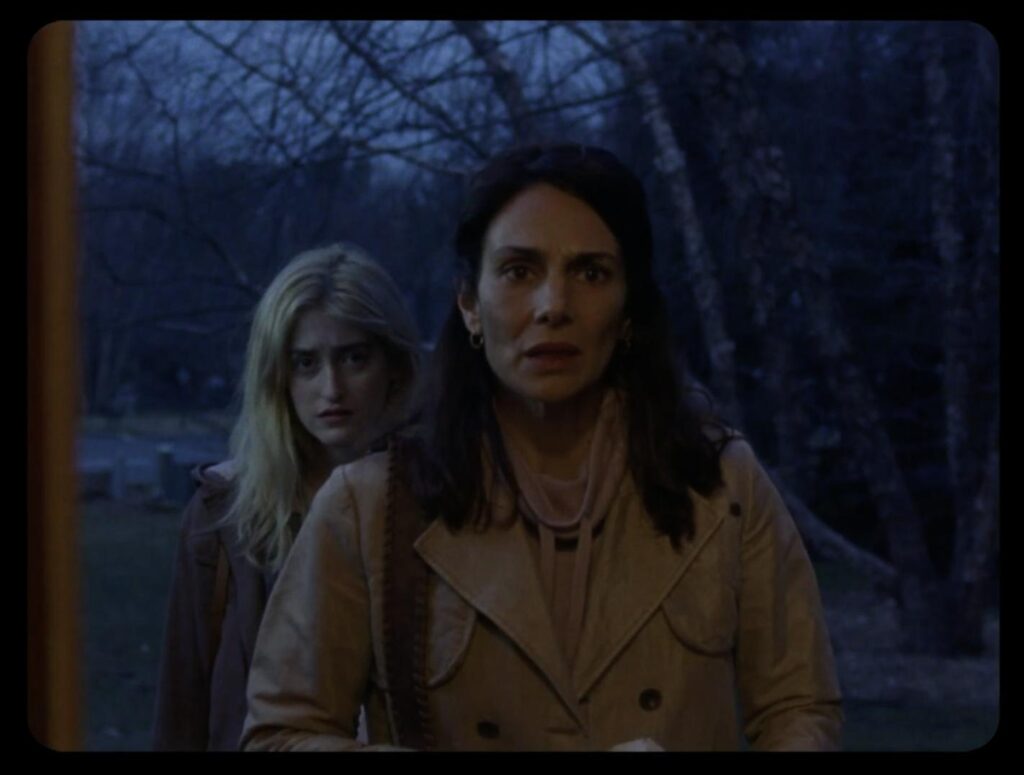
That is, until the plot kicks off in earnest, Diana’s identity being stolen online, and GIVING BIRTH TO A BUTTERFLY transforms into a fantastical, road trip odyssey as she and Marlene team up to traverse the confusing path to try and get answers. Seeming to exist nowhere and anywhere, it feels like the film takes place in the uncanny valley, with everything being just one tick off from the world we’re familiar with. For the most part, everyone speaks very unnaturally, and the film, directed by Theodore Schaefer, resembles a piece of surrealist theater more often than not. This distinct tone allows for the investigation of big ideas, one of them being parenthood. There’s Andrew who craves the opportunity to be a father to Marlene’s child even though the baby is not his biologically. He views fatherhood as “the only thing he can be good at,” given that he has seen so many bad ones. Where he sees being a parent as an identity, Diana and Marlene have a frank discussion about their views on motherhood as a loss of self. Specifically for Diana in terms of her unsupportive partner, motherhood was a dream for her, but it is difficult to have a dream when there’s no one to share it with.
Dreams are a central feature of GIVING BIRTH TO A BUTTERFLY. Most prominently in its style as logical, narrative sense takes a backseat to the hazy, meditative experience of watching the film. It leaves the audience questioning what is reality and what is fantasy. This translates even through some of the characters like Marlene’s mother (Constance Schulman), who is detached almost entirely from her reality, convinced she is a movie star needing to prepare for a 20/20 style tell-all interview. Throughout these rehearsals, we see her attempt to incorporate her real-world details and interruptions into her fantasy so as not to break the immersion. It’s like when you’re half asleep and your alarm goes off, and the plot of whatever dream you’re having changes to work in the sound that is playing. This is a story that Marlene’s mother tells herself in order to survive and seems to be all that keeps her going. Daryl is almost entirely consumed by his dream of opening a restaurant, little else mattering to him even half as much. Diana, in a different sense, discovers a dream she didn’t even know she had while on this journey. She thinks she is looking for one thing and ends up finding something entirely different and unexpected.
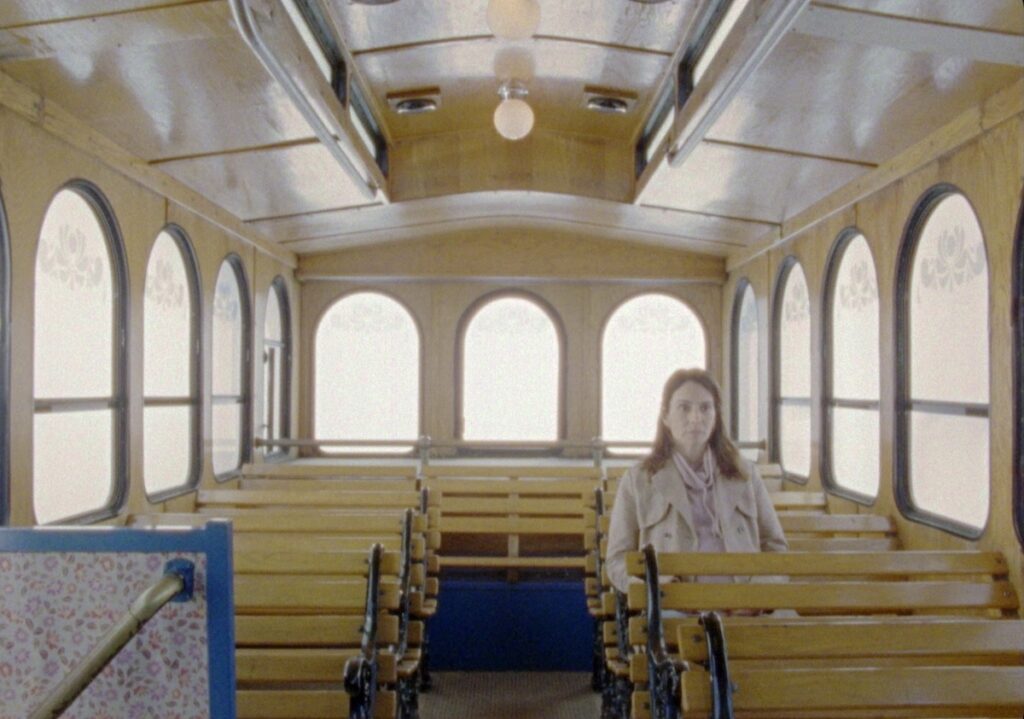
What does it truly mean to get what you want and to achieve your dreams? Once you find yourself within your fantasy, then what? The third act of GIVING BIRTH TO A BUTTERFLY attempts to answer these questions, shifting full-gear into a Lynchian-style horror short. It is also where I suspect the film will lose some people, but if this kind of thing is your speed, you may
just be enraptured. Diana and Marlene find themselves completely detached from reality. Whereas most of the film was a pastel tinged, somewhat tilted version of the world as we know it, fantasy has now bleed so deeply into reality that it is unrecognizable. Through quick, jarring cuts, confusing dialogue, impossible imagery, and a haunting soundscape, there is no denying that these events are not of our world. The pacing slows down immensely, making this final act feel like a long, extended dream. One that you will either want to wake up from, or immerse yourself in for as long as possible. The journey is what you make of it.
GIVING BIRTH TO A BUTTERFLY tackles the reality of escapism through fantasy, asking what you are really escaping to, and what you will find when you get there. Navigating us through these questions is an ensemble of performances that are incredibly cohesive in their shared understanding of the material. It is clear that a vision was laid out thoroughly, and that this was a film created with intention and great collaboration, all aspects working together to create a one of a kind movie experience. Perhaps most fascinating is the way in which we achieve such complex meditations on aspects of humanity after being launched off from a very simple statement from Diane: “There are so many ways to make money on the internet.” What she will learn before her journey’s end, however, is that there are even more ways to lose it, and yourself along the way.
GIVING BIRTH TO A BUTTERFLY, directed by Theodore Schaefer, will make its digital premiere on May 16th.
Tags: Annie Parisse, Cinedigm, comedy, Constance Schulman, Drama, Gus Birney, Jessica Pimentel, Matt Clegg, Mystery, Owen Campbell, Patrick Lawler, Paul Sparks, Rachel Resheff, Theodore Schaefer

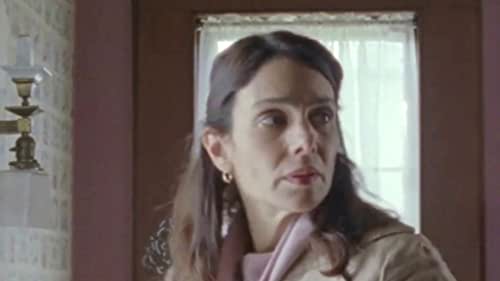
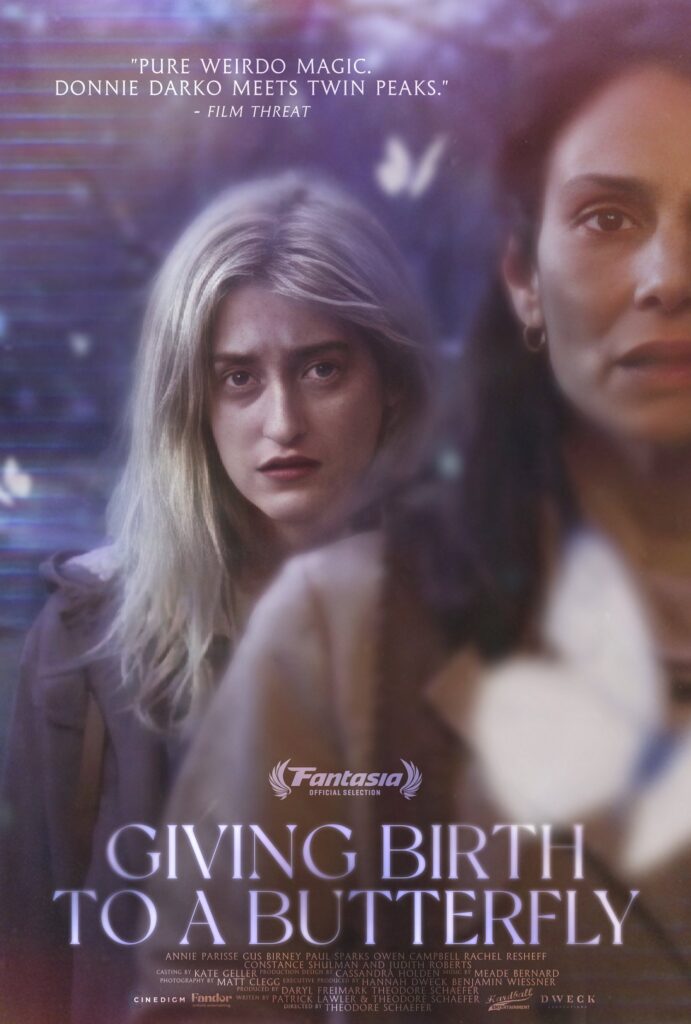
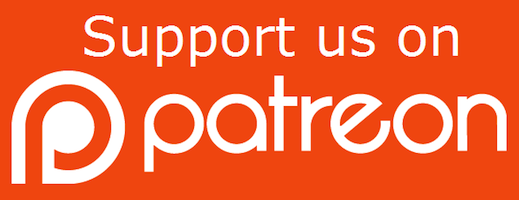
No Comments